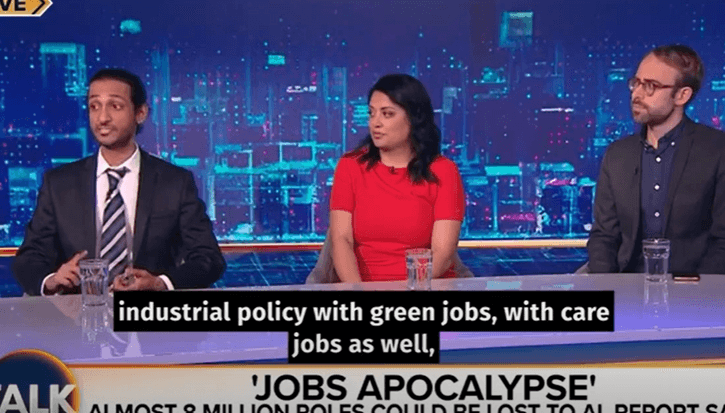Devo more: The path to a federal UK, not ever looser union
Self-rule alone is not the answer – why the UK needs to take a federal approach to unionArticle
The Scottish independence referendum has dramatically changed the landscape of debates about the future of the UK and its 'territorial constitution'. The No vote has meant that debates about the relationship of Scotland, Wales, Northern Ireland and England within the United Kingdom have moved to centre stage. The result was a clear vote for more powers within the Union, which means designing a settlement that simultaneously delivers greater self-government for its constituent parts without destabilising the Union as a whole. The question now is not 'if devolution' but 'how much'.
Undoubtedly, since 1999, devolution has made it harder to manage the UK as a whole. Increasing differences in policy and in what citizens can expect from government in each part of the UK undermined many traditional ideas of what it meant to be 'British' (though in truth there was always more variation in how policy played out than politicians in London have understood). Constitutional and financial anomalies made that worse, creating resentment in England at devolved 'advantages' that matched the level of resentment that used to exist Scotland and Wales at the predevolution arrangements. The Westminster government's reactive and ad hoc approach to the Union – at its best in agreeing arrangements for the Scottish independence referendum; at its worst in managing ordinary intergovernmental relations between the four governments and the mechanics of the Barnett formula – aggravated the situation further.
The UK government's response to the referendum result suggests it has still not wholly understood the complexity of the post-devolution UK. If any of the pro-Union parties can claim to have a realistic and strategic vision for what the UK is or means in the 21st century, it is doing a good job of hiding it. On the contrary, the pro-Union side has colluded with nationalists in allowing the language of discourse – indeed, the whole framing of the debate – to take root in notions of difference, antagonism and opposites, rather than an emphasis on how much is shared across the UK.
IPPR's 'Devo more' project calls into question the logic of an ever-decentralising union. Devolution is not a simple zero-sum game, in which more powers for Scotland mean less for the UK as a whole. It is about having a form of government which commands broad support across the UK, in a way that is fair to all UK citizens wherever they live. What underpins the project and its policy proposals is the belief that it is possible both to have more devolution – not just for Scotland but also Wales and Northern Ireland, if they wish it – and that a more sustainable form of devolution can have serious advantages for everyone. Devolution should not be a process of ad hoc bargaining for power. Providing a clearer definition of what devolution does and does not involve will make it easier to explain what the UK does and why, to all its citizens.
Implementing such a scheme offers other political advantages as well. A sustainable model of devolution like this will work with the grain of public opinion, which in both Scotland and Wales strongly supports devolution and wants more of it. This would make it harder for supporters of independence to recruit the sort of backing they need, from 'soft nationalist' voters who want self-government but not separate statehood. If nationalist parties cannot get this support for independence, they will either have to embrace forms of self-government within the Union or limit their electoral appeal to the modest numbers of die-hard supporters of out-and-out independence.
A more workable settlement will also remove many of the institutional sticking points which highlight the limits of 1998-model devolution. Some of these are no more than irritants, but they have an outsized political potency, as they remind voters of the shortcomings of the present arrangements. They also provide plenty of opportunities that could be exploited by a devolved government determined to make trouble. (This is something that the SNP has largely avoided since 2007, but if it had chosen to, it could have had bad news stories about the 1998 Act in the press pretty much every day.)
On the more positive side, it is possible to formulate schemes of enhanced devolution that are 'union-reinforcing', which strengthen the union by making it clearer why some things are done together and are the same across the UK, and some are done differently in various places. Done properly, this would make it very hard for either tier of government to claim all the credit for popular policies and to pin blame on the other for all the things that are less popular – a game that the UK government will find it very hard to win. But for now, that is the dynamic that the UK is stuck in. Moreover, if unionists take the initiative in formulating such a plan, they can both shape the terms of debate for the discussion that is yet to come and deny nationalists the kudos of 'extracting concessions from Westminster' that will otherwise dominate the political narrative.
Making 'devo more' happen implies a good deal of change in how the decentralised Union works. First and perhaps most difficult, it means consciously embracing the fact that the UK is a decentralised and multinational state, and has to be managed as such. The UK is in good shape in some respects – there are few of the strains about recognising Scotland and Wales as distinct nations within the UK (and Northern Ireland as having two national communities) that bedevil states like Canada or Spain.
Second, there need to be changes in the powers of devolved governments. Significant fiscal devolution is one part of this, and was the theme of the our first report in January 2013. Stronger fiscal levers will enhance the ability of devolved governments to adopt bespoke policies within the framework of the UK. This would not, however, amount to full fiscal autonomy, whereby the provision of public services in each nation would solely depend on tax revenues raised there. The union will continue to be a sharing union, exemplified in this case by a grant from the UK exchequer.
Welfare devolution is also important, as we argued in the our second report, published in March 2014. We do not think that it is possible or desirable to devolve many of the key areas of the social security system: pensions, benefits for the unemployed, the disabled and the long-term sick, and tax credits – these cannot easily be devolved, nor should they be. But other benefits, including housing benefit, could and should, and devolved governments should be able to provide additional welfare benefits if they see fit. That way, it becomes possible for devolved governments in Scotland or Wales with broadly social-democratic aspirations to deliver on their agendas, while remaining part of a Union whose largest part seems not to share those values so strongly – and avoiding the sort of blame politics that results when Scotland, Wales and Northern Ireland are given no option but to accept a welfare-reform agenda like that of the current Coalition government.
Third, there needs to be recognition of England's place in the Union, and of the problems of governing England. England cannot be taken for granted or overlooked any longer, but most of the constitutional solutions on the table (an English parliament, for example, and some of the stronger forms of 'English votes on English laws') are unlikely to be stable, if they are workable at all. Some form of self-government for England through Westminster is both necessary and unavoidable; that means a model of 'English votes on English laws' along the lines proposed by the McKay commission, which has three crucial benefits. It avoids constitutional instability on the parliamentary level, provides a greater prominence for the English aspects of Whitehall – particularly for such departments as health, education and local government – within the executive, and achieves a renewed emphasis on local self-government, through existing local authorities and city regions. Again, it is in the strategic interest of supporters of the Union to implement such measures willingly and soon, rather than to have them reluctantly extracted at some later date.
Fourth, the UK government cannot afford to be short-termist or unstrategic in its thinking about the Union. It has to have a strategy for what the UK looks like, and it has to ensure that that strategy is delivered consistently across government. This suggest a more joined-up approach than we have seen since 1999, anchored in some sort of active unit within the Cabinet Office or a new 'department of nations and regions'. This would also entail a more active and engaged approach to the conduct of intergovernmental relations: no more hour-long meetings in London crammed into ministers' diaries, for which devolved ministers lose at least half a day travelling to and fro. Devolved governments are part of the shared enterprise and joint venture of running the UK; they cannot be treated as second-class, subordinate governments, but must be recognised as vital to the whole undertaking. They need to be given the tools to do their job, and invited and expected to share in the responsibilities that come with it. This, in turn, needs to be part of a wider process of thinking about what we share together, and do together, at a UK level, and what we do differently in the nations, regions and localities of the UK, in a way that is serious, sustained and able to engage with the wider public, not just a political elite.
A devolved UK's future looks 'federal' in many respects – the main distinction being asymmetry in the relations between Wales and Northern Ireland with the UK as a whole, and the place of England within it. A more-or-less federal future means embracing both self-rule and shared rule as key elements of how the UK works, and acknowledging that self-rule alone is not the answer. Indeed, maximal forms of self-rule like 'devo max' have been decisively rejected by voters in Scotland by choosing to remain within the United Kingdom, since they are incompatible with remaining part even of a largely federal system. Reconciling self-rule and shared rule is what the devo more proposals aim to do, offering the basis on which to secure the long-term future of the Union.
Related items

Forging ahead: Deciding the direction of IPPR's Migration Policy Unit
In our last blog post for the Migration Policy Unit we shared our new way of working as we endeavour to be inclusive and transparent in our policymaking process. In this blog we set out what our first and flagship project is for the policy…
Who gets a good deal? Revealing public attitudes to transport in Great Britain
Transport isn’t working. That’s the message from the British public. This is especially true if you’re on a low income, disabled or living in the countryside. The cost of living crisis has exposed the shortcomings of our transport system,…
Bhargav Srinivasa Desikan on TalkTV discussing AI
IPPR's Bhargav Srinivasa Desikan on TalkTV discussing his new report on the impact of generative AI on the UK labour market.